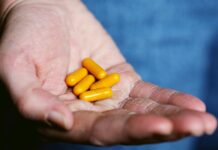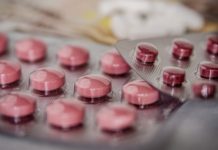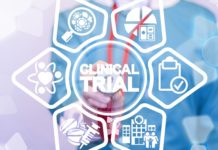Sun Pharma has announced late-breaking data from two pivotal Phase-3 clinical trials (reSURFACE 1 and 2) achieving the primary endpoint with tildrakizumab, an investigational IL-23p19 inhibitor, in patients with moderate-to-severe plaque psoriasis at the 25th European Academy of Dermatology and Venereology (EADV) Congress in Vienna, Austria.
The Phase-3 data results through week 28 are being presented for the first time as part of the “Late Breaking News” Session at the premier European dermatology conference where the latest in research and developments in the field are presented each year. Tildrakizumab clinical trials included over 1,800 patients from more than 200 clinical trial sites worldwide.
In the trials, an average of 63 percent of patients achieved 75 percent of skin clearance (Psoriasis Area Sensitivity Index or PASI 75) by week 12 after only two injections, and 77 percent achieved 75 percent skin clearance after 28 weeks and three injections of the 100 mg dose of tildrakizumab (64 percent and 80 percent in reSURFACE 1, 61 percent and 74 percent in reSURFACE 2). Similarly, an average of 57 percent and 66 percent of patients had a Physician’s Global Assessment (PGA) score of “clear” or “minimal” with the 100 mg dose at weeks 12 and 28 respectively.
Those receiving the 200 mg dose also saw an average of 64 percent and 78 percent of patients achieving PASI 75 at weeks 12 and 28 respectively. Also, 59 percent and 69 percent of the patients had PGA score of “clear” or “minimal” at weeks 12 and 28 respectively.
The data further showed that a higher number of patients on tildrakizumab achieved PASI 90 and 100 compared to placebo and etanercept. An average of 37 percent and 36 percent of patients on tildrakizumab achieved PASI 90 at week 12 with the 100 mg dose and 200 mg dose respectively which increased to 54 percent and 59 percent at week 28. Correspondingly, an average of 13 percent on tildrakizumab achieved PASI 100 at week 12 regardless of dose with an increase to 24 percent for the 100 mg dose and 30 percent for the 200 mg dose at week 28.
The overall safety profile of tildrakizumab in both Phase-3 clinical trials was consistent with the safety data observed in previously reported studies. The incidences of severe infections, malignancies, and extended major cardiovascular events (MACE) were low and similar across treatment groups (1-3 percent).
“For patients with psoriasis, their condition is always top of mind and they struggle on a daily basis with the often debilitating effects of this chronic condition. In our studies, we saw that the targeted effects of tildrakizumab significantly improved skin clearance offering a potential new treatment option for many patients with quarterly dosing,” said Dr. Kristian Reich, Professor of Dermatology at the Georg-August-University Göttingen and inflammation specialist at the Dermatologikum Hamburg in Germany.
“We are excited about these Phase-3 tildrakizumab results that further validate the central role of IL-23 as a key regulatory cytokine and treatment target in psoriasis. Tildrakizumab has the potential to be a new treatment that helps people living with moderate-to-severe psoriasis,” said Jesper Jensen, Executive Vice President, Biologics and Dermatology, Sun Pharma. “At Sun Dermatology, we care to make a difference and seek to match our products and solutions making them accessible and available to patients and health care providers with unmet needs.”
Additional findings from the Phase-3 clinical trials will be presented at upcoming scientific meetings and the preparations for regulatory submissions in both the U.S. and Europe are proceeding. In July 2016, Sun Pharma had announced a strategic licensing agreement with Almirall S.A (Spain) on the development and commercialization of tildrakizumab for psoriasis in Europe.
About Tildrakizumab Phase-3 reSURFACE Trial Design
Tildrakizumab Phase-3 studies (reSURFACE 1 and 2) are randomized, placebo-controlled, multicenter studies designed to demonstrate efficacy of tildrakizumab in moderate-to-severe plaque psoriasis compared to placebo and comparative drug and to assess safety and tolerability. The co-primary efficacy endpoint of the two placebo controlled studies were the proportion of patients with Psoriasis Area Sensitivity Index 75 (PASI 75) response at week 12 compared to placebo and the proportion of participants with a Physician’s Global Assessment (PGA) score of clear or minimal with at least a 2 grade reduction from baseline at week 12 compared to placebo. The reSURFACE 2 trial also included an etanercept comparator arm, with a key secondary endpoint comparing tildrakizumab and etanercept on PASI 75 and PGA. Other co-secondary endpoints of both placebo controlled studies included PASI 90 and PASI 100 responses at week 12 and PASI 75, 90 and 100 and PGA responses from baseline at Week 28. PGA measures lesion thickness, erythema and scaling across all of a patient’s psoriasis lesions in order to determine the disease activity on a six-point scale from “clear” to “severe.” A PASI score is a measure of psoriatic plaque redness, scaling and thickness and extent of the involvement in each region of the body. Treatment efficacy is often measured by reduction of PASI from baseline (i.e. 75 percent reduction is known PASI 75, a 90 percent reduction is known as PASI 90 and PASI 100 is total clearance of skin disease).
About Tildrakizumab
Tildrakizumab is an investigational humanized, anti-IL-23p19 monoclonal antibody designed to selectively block the cytokine IL-23. With this precise targeting, tildrakizumab has the potential to help control the pathogenic cells responsible for the inflammatory process of psoriasis with limited impact on the rest of the immune system.



















